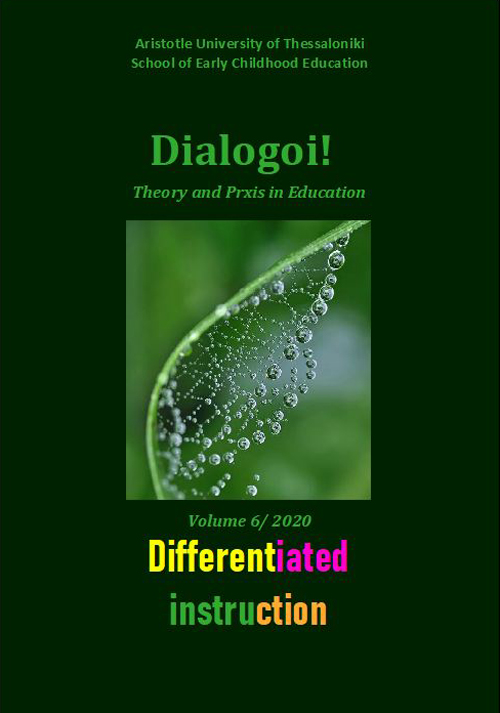Differentiated pedagogy in early childhood education: Challenges and prospects

Abstract
Although diversity is a norm in early childhood classrooms and scholars' interest in differentiated pedagogy (DP) is constantly renewed, this approach has not yet found its place in early childhood classrooms. After looking at a short overview of the theoretical and methodological framework of DP and taking into account specific features of early childhood education, this study concentrates on key components of this pedagogical orientation. It draws upon sociocultural approaches (i.e. funds of knowledge) and central ideas (i.e. ZPD) that intersect with the basic principles of DP to argue for the importance of reconsidering the concepts of diversity, assessment and children’s interests.
Re-examining the multidimensional nature of diversity, the article reconceptualizes it through the construct of funds of knowledge. Established on this perspective, the discussion that follows unfolds the challenges educators have to face in order to implement a kind of an assessment that seeks to understand and capitalize on young children’s lives, resources and interests.
The article concludes that the evidence base for an early childhood differentiated pedagogy that respects children’s agency and cultural ways of knowing needs, by questioning the strict framework of DP, to incorporate a broader view of children’s diversity, acknowledge the wealth of culturally developed knowledge and skills children bring at school, and shape a dynamic and comprehensive framework for children’s assessment incorporating tools that allow young learners to narrate their personal learning stories and discover their interests.
Article Details
- How to Cite
-
Παπανδρέου Μ. (2020). Differentiated pedagogy in early childhood education: Challenges and prospects. Dialogoi! Theory and Praxis in Education, 6, 77–96. https://doi.org/10.12681/dial.25547
- Issue
- Vol. 6 (2020)
- Section
- Special Theme

This work is licensed under a Creative Commons Attribution-NonCommercial-ShareAlike 4.0 International License.
Authors who publish with this journal agree to the following terms:
- Authors retain copyright and grant the journal right of first publication with the work simultaneously licensed under a Creative Commons Attribution Non-Commercial License that allows others to share the work with an acknowledgement of the work's authorship and initial publication in this journal.
- Authors are able to enter into separate, additional contractual arrangements for the non-exclusive distribution of the journal's published version of the work (e.g. post it to an institutional repository or publish it in a book), with an acknowledgement of its initial publication in this journal.
- Authors are permitted and encouraged to post their work online (preferably in institutional repositories or on their website) prior to and during the submission process, as it can lead to productive exchanges, as well as earlier and greater citation of published work (See The Effect of Open Access).



